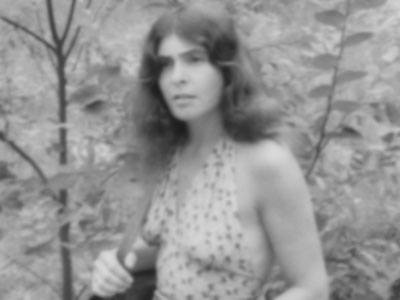
Her eyes reflected that rather puzzled look that in women is sometimes the prelude to an inclination for the man on whom it is directed.
Nicholas Jenkins in Anthony Powell’s
The Acceptance World
Albertine Appears
|
I Beat the Odds
From Best That Test: Your Guide to the Comprehensive College Competency Exam
|
I walked from my house southward, on my way to Raskol’s. For some time, for perhaps a year before I had left on my trip to New Mexico, I had been acutely aware of a change that occurred when I reached a certain point in the walk from Babbington Heights to Babbington Village, old Babbington. It was a change from the drab to the picturesque. I can’t remember, now, when or how I learned that the part of town where I lived was the wrong part of town, or came to understand the distinction between the two parts of town, but I knew it in some ill-defined way before I ever perceived it for myself. I learned it from the attitudes of other people, of adults. Once I was aware of the distiction, I seemed to see it more clearly every time I traveled between the Heights and the Village. Now, in the summer, I saw the bleakness of the Heights in the little lawns in front of the little houses, dry, brown, and brittle; in the dust that seemed to settle everywhere, the rivulets of dust in the gutters, swept into eddies by the dry summer wind; the battered cars; the peeling paint; the storefronts selling everything cheap. Whenever I made the long walk from my house to the village, I anticipated the stretch in which the scruffiness of the Heights began to fall away and the charm of the village began to dominate. It was, or it felt like, a transition from a life that was low, crass, and brutish to a life that was elevated, refined, and civil. It was a transition that I had begun to aspire to. I had begun to feel that I belonged in a better place, among a better group of people, living my life in a better way, doing better things with my time.
“Good for you!” said my superior self, who seemed to have decided to walk with me.
“I guess,” I said.
“What do you mean by that?” he asked.
“Well, I think I’m setting a course for myself that’s going to mean a lot of hard work.”
“That’s a fine thing in itself!” he declared.
“Yeah,” I said without enthusiasm.
“Heretofore,” he said, “you have managed to get through life without much effort.”
“‘Heretofore’?” I said.
“Up until now,” he explained.
“You know,” I said, shaking my head in wonderment, “I feel pretty certain that you are merely a part of me, of my self, as Spirit was when she spoke to me during those lonely hours on the road when I was making my epic journey to Corosso, but sometimes you sound like Dudley Beaker.”
“Perhaps, should you ever manage to turn your present self into your better self, you will discover that your better self is a person more like Dudley Beaker than like your present self,” he said.
“I shudder at the thought,” I said.
“All he wants for you, all I want for you, is to have you aspire to a life that is at least a step or two above the life that you find yourself leading. We want to see you enjoying the society of companions who are a cut or two above the barnyard level of the herd; we want you to live within a culture that values the cream of human endeavor above the kitsch, the crap, and the dreck.”
“I can’t believe that you said that,” I said.
“What?”
“‘The kitsch, the crap, and the dreck.’”
It was his turn to chuckle. “The message seemed to call for strong language,” he said.
I was conducting this interior conversation with only half a mind, at most. Another sizable section of me was wondering how soon my progress to Raskol’s would be interrupted by some admirer who wanted to hear a firsthand account of my adventures. I was reminding myself to treat my public with kindness. All they wanted was a scrap of my adventure to brighten their little lives. How could I possibly deny them a moment or two of my time? Now that I thought about it, I could see that I really had a duty, an obligation, to give them that bit of time, to offer them that scrap of my adventure.
A car horn startled me.
“You trying to get yourself killed?” shouted a driver.
“Huh?” I said.
“You can get yourself killed that way, you know,” he said in a scolding tone that I resented.
“What way?” I asked.
“Standing in the middle of the road talking to yourself like a loony,” he said.
“Oh. Sorry,” I said. “I was lost in thought.” Setting my resentment aside, I said, “I was recalling some of the adventures I had on my way to New Mexico and back. You might be interested in hearing—”
“Birdbrain!” he shouted as he drove away.
|
|
|
|
|
|
